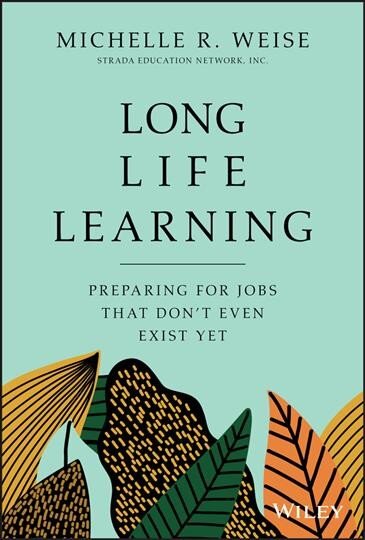"A visionary guide for the future of learning and work Long Life Learning: How to Prepare Yourself for Jobs That Don't Even Exist Yet offers readers a fascinating glimpse into a near-future where careers last 100 years, and education lasts a lifetime. The book makes the case that learners of the future are going to repeatedly seek out educational opportunities throughout the course of their working lives -- which will no longer have a beginning, middle, and end. Long Life Learning focuses on the disruptive and burgeoning innovations that are laying the foundation for a new learning model that includes clear navigation, wraparound and funding supports, targeted education, and clear connections to more transparent hiring processes. Written by the visionarychief innovation officer of Strada Education Network's Institute for the Future of Work, the book examines: How will a dramatically extended lifespan affect our careers? How will more time in the workforce shape our educational demands? Will a four-year degree earned at the start of a 100-year career adequately prepare us for the challenges ahead? Perfect for anyone with an interest in the future of education and Clayton Christensen's theories of disruptive innovation, Long Life Learning provides an invaluable glimpse into a future that many of us have not even begun to imagine"--
Long Life Learning offers readers a fascinating glimpse into a future where the average working life has no beginning, middle, or end. Contemplating a shift from the educational all-you-can-eat buffet of college and university to an "as-you-need-it" approach to delivering education, author Michelle Weise explains why and how worker education is overdue for momentous changes. Written in two parts, Long Life Learning begins by imagining a world where increased lifespans have contributed to creating working lives that span over 100 years. The book asks the question that naturally arises as a result: Will a four-year education taken at the beginning of a 100-year career adequately prepare a worker for their entire working life? After providing readers a thorough explanation of why our current education system is poorly equipped to educate workers for such a long journey, Weise outlines the solutions to the shortcomings of the existing framework. From wraparound supports for workers to targeted education, integrated earning and learning, and transparent and fair hiring, Long Life Learning describes exactly how the existing education system must adapt in order to meet the needs of a new generation of workers. The book makes a compelling case for the coming need for ongoing, periodic education, as well as training that is seamlessly integrated into our future jobs. Perfect for workers, young and old, and the educators and employers preparing talent as the ground shifts underneath their feet, Long Life Learning belongs on the bookshelves of anyone with an interest in the future of work, education, and the labor market.
